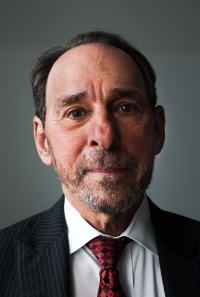“I have never thought of pretending that part of my story just didn´t happen.”

Download image
José Azel was born in 1948 in Havana. His mother died when he was 10 years old. His father was a lawyer. He had two older brothers with whom he lived in the United States after leaving Cuba at a very young age. José was strongly influenced by the teachers at the Catholic school he attended. As a result, at the age of 12, he joined the resistance against the recently established government of Fidel Castro. He participated in several minor acts of sabotage and was distributed anti-Castro propaganda. After the failed attempt to land at the Bay of Pigs, he was sought out at home by the Secret Police. Immediately his father began to arrange his departure for the United States at the age of 13 years through Operation Peter Pan. In the U.S., his 17-year-old brother was awaiting him. The brothers met their needs by doing odd jobs as vegetable pickers, newsboys, or restaurant assistants. At the same time, they underwent training so they could fight the Fidel Castro government. After the United States ceased to support such activities, he wanted to start a new life, so he began to study at the University of Miami. After graduating, he became a successful businessman. After retiring, he joined the university staff as an expert in Cuban studies. Today he educates young Cuban dissidents and publishes his thoughts on Cuba, both in books and in the press. He advocates classical liberalism and considers himself a political emigre. He refuses to go to Cuba until there is a change of conditions.
